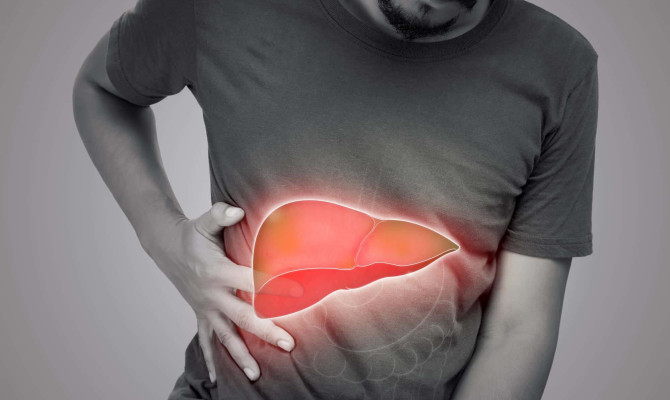Is Asthma An Autoimmune Disease? Unraveling The Connection

- Asthma
- 19 Oct 2023
Overview
Asthma
Asthma is the pain and swelling of the air passages that take air backward and forward from the lungs. The soreness is due to tapering the air passages that secrete excess mucus. The individual with asthma experience chest pain, trouble breathing, cough, and gasping sound while breathing in and out. In the United States, Asthma is widespread in youngsters and adults. To date, there is no known cure for Asthma. However, taking specific medications and averting certain foods can well manage asthma symptoms.

The article will summarize Asthma, its types, symptoms, diagnosis, and treatment, and also explain how it impacts the body’s immune response. It will also answer specific queries on Asthma that individuals are interested in and provide the food list that one should avoid to tackle asthma disease better. 1 Overview | Researched based study from National Institutes of Health
Connection
Is Asthma an Autoimmune Disease?
- Experts don’t regard Asthma as an autoimmune disease
- Autoimmune disease is when the body attacks its healthy cells and tissues, causing several manifestations viz; skin rash, cardiac problem, joint ache in the body. Researchers have recognized over eighty autoimmune diseases, including multiple sclerosis, rheumatic arthritis, lupus, and type 1 diabetes.
- Conversely, Asthma is also due to the body’s immune response, but it is not an autoimmune illness. Asthma is a continual lung ailment that chiefly impacts the lungs.
- An individual can experience asthma attacks or lung inflammation from usual stimulants viz; pollen, chilled air, smoke, dust, and sickness 2 The Connection | Researched based study from National Institutes of Health .
- Experts describe autoimmune disease and persistent Asthma as the impact of the body’s abnormal immune response.
- Each condition creates soreness and puffiness in specific body parts and can prove fatal if left untreated.
- There is no known cure for both conditions, but doctors can handle the conditions well with specific medications. Sometimes, both diseases have no symptoms, and the individual can carry on everyday activities 3 The Connection | Researched based study from National Institutes of Health .
Both diseases differ from each other in the following aspects-
- In the case of Asthma, specific triggers viz; food, exercise stimulate the body’s incorrect immune response, whereas, in autoimmune disease, it occurs due to incorrect immune response attacking the body’s normal cells
- In Asthma, the affected part is only the lungs, while in autoimmune disease, the affected region can be one or many parts of the body.
- Asthma occurs due to abnormality of Th2 helper cells (immune cells), while autoimmune disease is due to Th1 helper cells abnormality 3 The Connection | Researched based study from National Institutes of Health.
Does a weak immune system make Asthma worse?
- People with weak immune systems usually get Asthma. Research has indicated that asthma patients have reduced immune responses and are less capable of preventing the flu than normal individuals.
- Experts evaluated the lung biopsy reports of individuals with and without Asthma, finding that asthma patients have weaker immune responses against flu than normal individuals.
- Researchers have also found that asthma patients do not get severe sickness or die from flu complexities than normal individuals. However, more research is needed to get the complete understanding 6 The Connection | Researched based study from National Institutes of Health.
- Most people get an asthma attack when they have a respiratory viral attack. The reason is that when an individual is ill, the body produces additional mucus that obstructs the airways, causing pain and swelling.
- Moreover, if people with previous breathing issues fall sick, persistent Asthma might be initiated 4 The Connection | Researched based study from Asthma + Lung UK .
- People can reduce the risk of asthma attacks at times of sickness by noticing the disease signs and taking preventive medication viz; inhaler, drugs as the doctor advises.
- One can also speak to a health professional regarding other asthma treatments to prevent future asthma risks 5 The Connection | Researched based study from National Institutes of Health.
Asthma medication and the immune system
- Research has indicated that prolonged use of corticosteroid drugs might further weaken the body’s immune response.
- So certain infections, viz; flu, might be due to asthma drugs or asthma disease. Thus, people with acute asthma attacks should only use inhaler medications to avert the probable risk.
- However, speak to the health provider for advice based on the patient’s condition 7 The Connection | Researched based study from National Institutes of Health.
Types
Types of Asthma
Doctors divide Asthma into the following types based on symptom severity and reasons.
Persistent Asthma
- Persistent Asthma is when an individual experiences symptom most of the time with varying disease symptoms viz; severe, moderate, or mild.
- Doctors consider the asthma severity on how well a person can carry out everyday activities during the disease period.
Intermittent Asthma
- Intermittent asthma disease is not continuous, and the symptoms reappear after specific periods with no symptoms.
Asthma types due to several causes are listed below-
Allergic
- Specific allergens viz; pollen, molds, and dust can initiate an asthma attack leading to allergic Asthma
Non-allergic
- Sometimes, factors other than allergens can cause Asthma. It includes stress, sickness, physical activity, and climate and can cause asthma attacks.
Occupational Asthma
- Occupational Asthma occurs in people whose working environment contains irritating compounds viz; dust, fumes, gas.
Exercise- induced Asthma
- Certain people with specific laborious activity can have exercise-induced Asthma.
Asthma Chronic obstructive pulmonary disease overlap syndrome
- It happens in individuals with both chronic obstructive pulmonary disease and Asthma.
- In both conditions, people experience shortness of breath. COPD is when there is airflow obstruction to the lungs.
Nocturnal Asthma
- It is the type in which the asthma symptoms deteriorate at night time, and the triggers might be dust mites, sleep cycle, and heartburn 8 Types | Researched based study from National Institutes of Health. Moreover, Asthma can also occur at different ages, viz;
Pediatric Asthma (childhood asthma)
The disease can begin in children below five years and also happen to babies below one year.
Adult-onset Asthma
The disease happens to individuals above 18 years. 8 Types | Researched based study from National Institutes of Health
Symptoms
Asthma Symptoms
The asthma symptoms might vary from person to person based on the asthma type and disease severity.
Some of the common symptoms of Asthma are listed below –
- Whistling sound during inhalation and exhalation
- Chest pain
- Difficulty in speaking
- Trouble breathing
- Tiredness
- Fear and anxiety
- Fast breathing
- Difficulty sleeping
- Recurrent infections
Symptoms of irregular asthma flare-up:
- Whistling sound during breathing
- Cough
- Unclear throat
- Chest pain
- Extreme tiredness
- Difficulty sleeping
Asthma symptoms that need immediate medical attention:
- Extreme difficulty in breathing
- Confusion
- Gasping (out of breath)
- Lightheadedness
- Difficulty walking
- Difficult speaking
- Blue or pale fingernails and lips 9 Symptoms| Researched based study from National Institutes of Health.
Causes
What is the Root Cause of Asthma?
Scientists don’t know the exact cause of Asthma. However, certain specific factors might increase the chance of Asthma.
- Family history of Asthma
- Environmental factors viz; smoke, fumes, gas
- Respiratory infections viz; certain viral infections
- Allergies 12 Causes | Researched based study from National Institutes of Health.
What foods trigger asthma?
Some foods that might trigger Asthma are listed below-
Gas causing foods:
- Beans
- Cabbage
- Onion
- Garlic
- Fried food
- Carbonated drinks
Sulfite preservative-containing food:
- Dried fruits
- Wine
- Pickle
- Shrimp
- Lime juice
Food allergens:
- Shellfish
- Soya
- Milk
- Eggs
- Peanuts
- Sesame seeds 13 Causes | Researched based study from National Institutes of Health.
Diagnosis
Asthma Diagnosis
- The doctor will initially execute a physical examination with a stethoscope to evaluate the breathing sound and might enquire about the person’s medical and family history.
- He might also order a skin test to find out signs of allergy.
- Further, he might order a pulmonary function test to measure the quantity of air traveling in and out of the lungs.
- The health professionals do not perform any tests for children under five years; instead, they advise asthma drugs to see if the symptoms improve with time. A positive response to asthma medication indicates that the child has Asthma 10 Diagnosis | Researched based study from National Institutes of Health.
Treatment
Asthma Treatment
The doctor advises treatment based on the person’s age, triggers, and asthma type. Some of the treatments that doctors advise are listed below.
Asthma Treatments for quick relief:
The medication is used only at times of asthma attack, and some of them are as follows-
Immediate care for asthma attack
- People having an asthma attack must sit upright and take a nebulizer or inhaler to get instant relief.
- If the symptom does not improve within 15 to 20 minutes, one must immediately contact the health provider for medical help.
Bronchodilators
- It works instantly to unwind the compact muscles around the air passages to relieve asthma symptoms.
- Doctors usually give bronchodilators as inhalers, although the medication is available in injectable or oral form.
Long-term asthma medication:
Doctors prescribe the drugs to take every day to manage the asthma symptom’s severity and frequency of attack. Some long-term medications are listed below-
Anticholinergic drugs
- They assist in preventing muscle compaction around the air passages. Doctors generally prescribe to take it with other anti-inflammatory drugs.
Anti-inflammatory drugs
- Patients should take the anti-inflammatory drug with other corticosteroid medication and inhalers to better manage airway inflammation and mucus production and for easy breathing.
Bronchodilators (long-acting)
- Doctors advise patients to take bronchodilators (long-acting) along with anti-inflammatory drugs.
Biologics
- Physicians advise biologic when all other treatments for asthma disease do not respond.
- Biologics attack the body’s specific antibodies that initiate asthma pain and swelling. Doctors give biologics as infusions or injections in a hospital or health clinic.
Bronchial thermoplasty
- The new approach uses electrodes to warm the lung’s airways, reducing puffiness and muscle compaction. It is advised only for patients with rigorous Asthma.
- Doctors perform the procedure in a health clinic, and the treatment might provide patients with long-term asthma relief for around five years 11 Treatment| Researched based study from National Institutes of Health.
Does Asthma mean you have a weak immune system?
- People get asthma symptoms when the body’s immune response reacts to specific triggers viz; infection, dust, pollen.
- The immune system weakens when one gets Asthma, but it is not an autoimmune disease.
FAQs
Frequently Asked Questions About Asthma
Q. Can Asthma be cured?
- There is no known cure for Asthma, but doctors can manage the symptoms with specific inhalers and drugs.
Q. Can Asthma damage your lungs?
- If Asthma is left untreated, it can damage the lungs irreparably.
- Asthma swells the inner lining of the air passages and compacts the airway muscles. It constricts the air passage and decreases air to the lungs.
Q. Can Asthma go away with exercise?
- Physical exercise might help in asthma relief if done correctly.
- Exercise decreases pain and puffiness and enhances lung capacity, boosting general lung fitness.
- However, one should never forget to take the drugs as the doctor advises and exercise regularly to avert asthma flares.
Takeaway
Asthma: Speak to Health Professional
Asthma isn’t an autoimmune condition but a persistent disease that can create hazardous health issues if not promptly handled with medication. Always speak to the health professional to know what can keep the disease in control and prevent future asthma attacks at times of illness.
Any feedback on this article?
 This Articles content was accurate
This Articles content was accurate Very Informative Article
Very Informative Article I have a question or a comment
I have a question or a comment
 This article contains inaccurate content
This article contains inaccurate content This article was not helpful
This article was not helpful I have a question or a comment
I have a question or a comment
We appreciate your helpful feedback!
Checkout our social pages
References
-
National Institutes of Health
Overview
-
National Institutes of Health
The Connection
-
National Institutes of Health
The Connection
-
Asthma + Lung UK
The Connection
-
National Institutes of Health
The Connection
-
National Institutes of Health
The Connection
-
National Institutes of Health
The Connection
-
National Institutes of Health
Types
-
National Institutes of Health
Symptoms
-
National Institutes of Health
Diagnosis
-
National Institutes of Health
Treatment
-
National Institutes of Health
Causes
-
National Institutes of Health
Causes



































